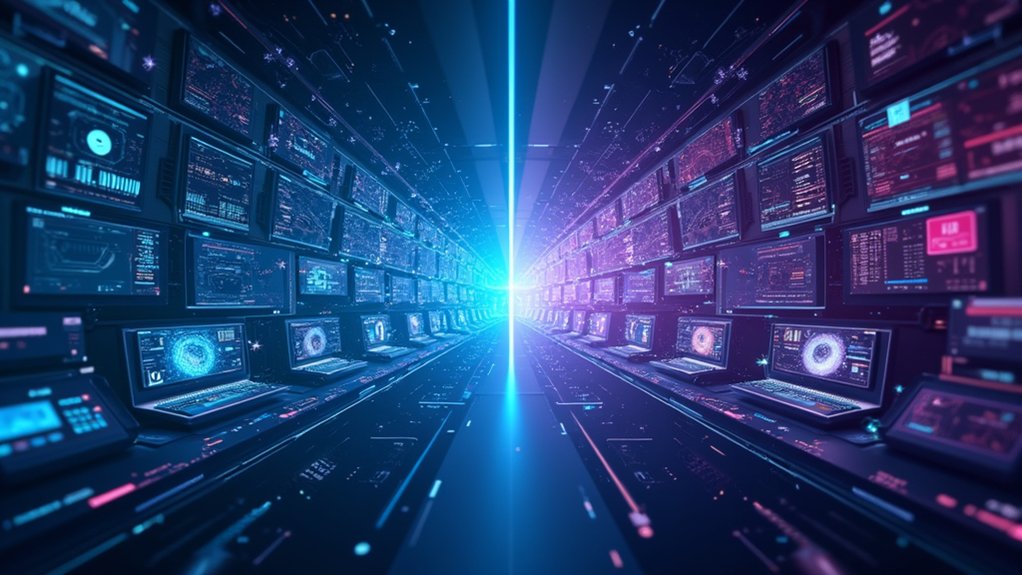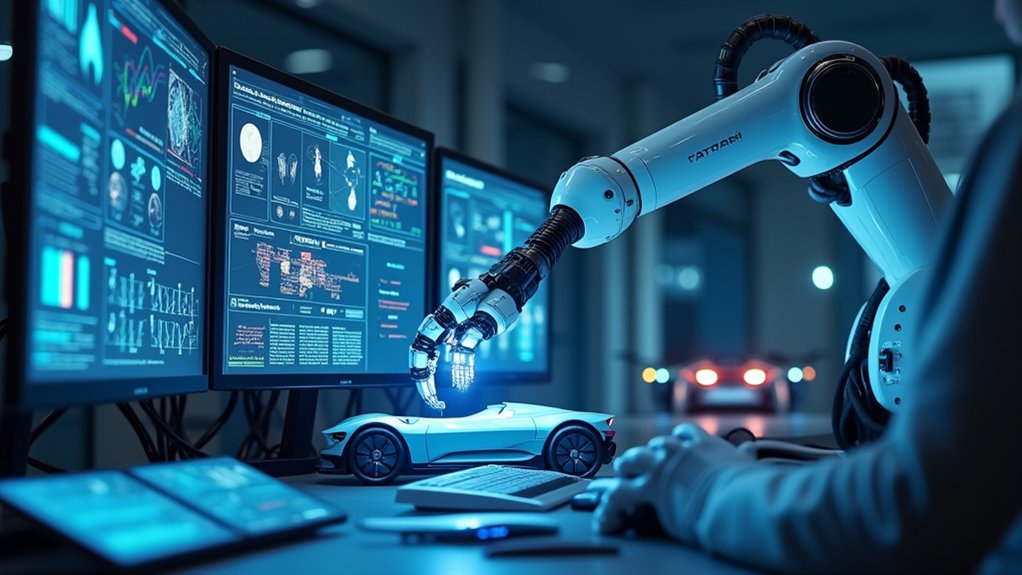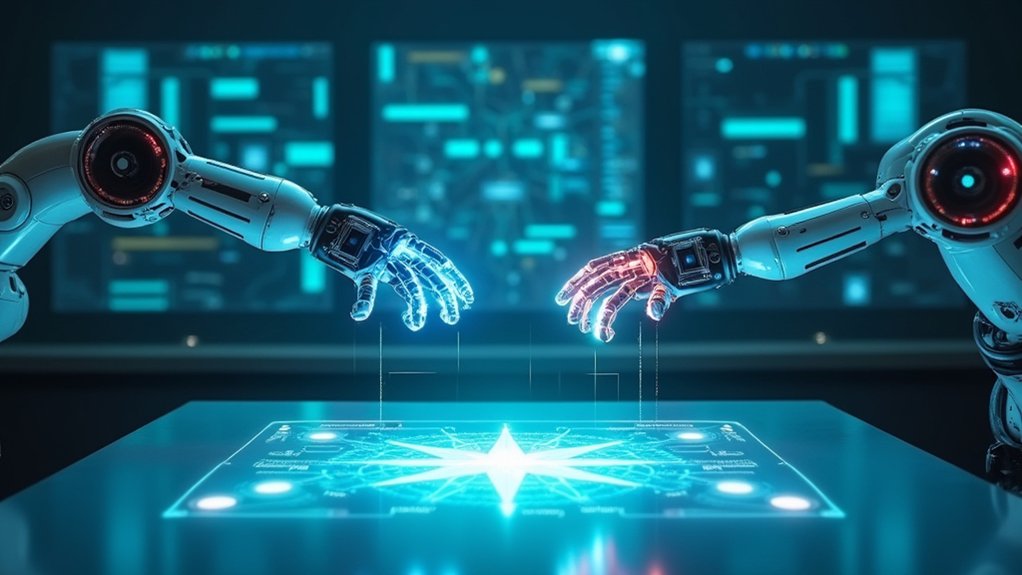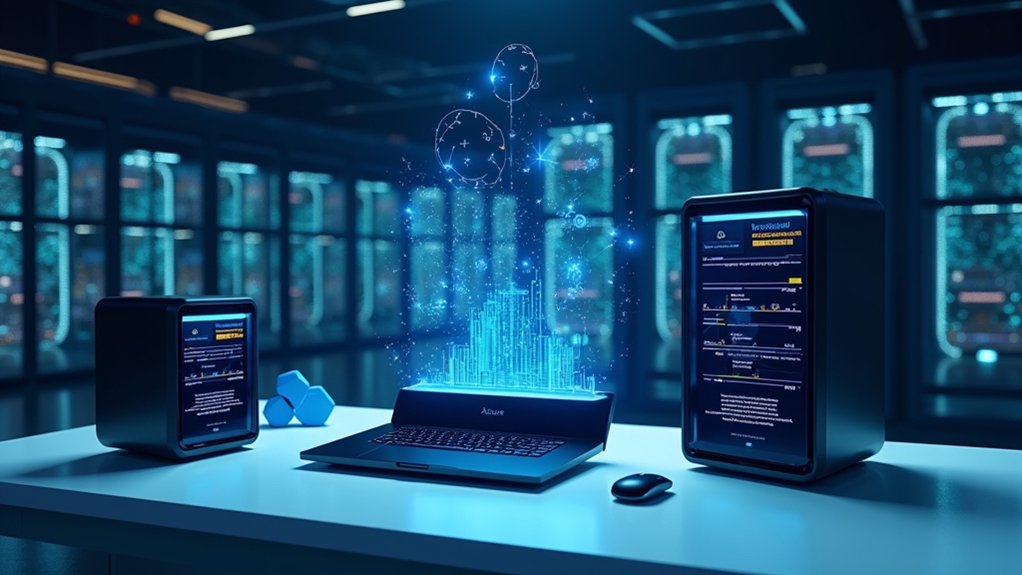Artificial intelligence (AI) is the broader concept of machines performing tasks that require human intelligence. Machine learning (ML) is a subset of AI where systems learn from data to improve performance. AI includes various technologies like rule-based systems and can work with limited data. ML needs large datasets to identify patterns and can adapt continuously. Both power modern applications like virtual assistants and autonomous vehicles. The relationship between these technologies offers fascinating insights into our technological future.
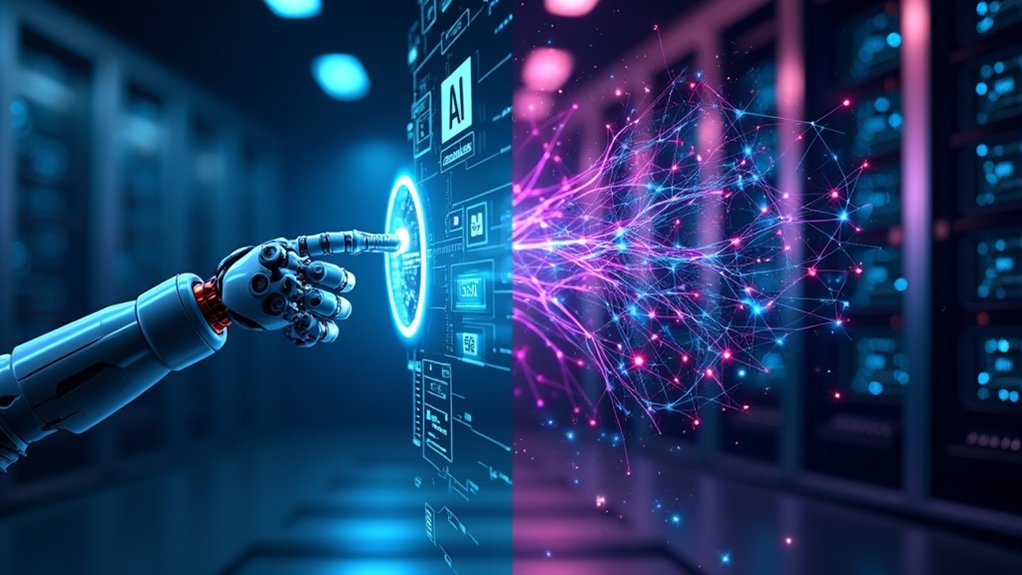
While many people use the terms AI and machine learning interchangeably, they’re actually quite different concepts with distinct characteristics.
Artificial Intelligence (AI) is the broader idea of machines that can perform tasks that typically require human intelligence. Machine Learning (ML) is a subset of AI that focuses specifically on systems that learn from data.
AI encompasses many technologies, including ML and rule-based systems. It aims to create machines with general intelligence across domains. AI systems can use reasoning, problem-solving, and perception skills. They often rely on symbolic logic and may follow predefined rules programmed by experts. Some AI programs can work even with limited data. The fundamental goal of AI is to simulate human intelligence using algorithms, data, and computational power to perform complex tasks.
AI extends beyond machine learning to include rule-based systems, aiming for general intelligence with reasoning and problem-solving capabilities.
ML, by contrast, is narrower in scope. It uses algorithms and statistical models to find patterns in data without explicit programming. ML systems improve their performance through experience and mainly use inductive reasoning. They typically need large datasets to learn effectively and work well with raw, unstructured information. ML emphasizes learning from experience to improve performance on specific tasks over time.
The adaptability of these systems also differs. Traditional AI may have fixed behavior once deployed and might need manual updates. ML models, however, can continuously learn and adapt to new patterns, sometimes even in real-time.
In everyday life, we see AI in virtual assistants like Siri and Alexa, robotics, and expert systems. ML powers specific applications like image recognition, recommendation systems, and fraud detection. Both technologies contribute to autonomous vehicles, but in different ways. Generative AI, which has gained significant attention recently, represents a specialized application that can create novel content based on patterns learned from existing data.
Looking ahead, AI research aims toward artificial general intelligence (AGI) – machines with human-like understanding across all tasks. ML advances focus on better algorithms and efficiency. While AI faces challenges with common-sense reasoning, ML struggles with making its decisions easily interpretable by humans.
As these technologies develop, they’ll continue to complement each other, with ML providing the learning capabilities that make many AI systems more powerful and adaptable.
Frequently Asked Questions
How Do AI and ML Impact Employment Opportunities?
AI and ML are creating millions of new jobs worldwide while displacing others. Reports show up to 133 million new roles may emerge by 2025, particularly in healthcare, manufacturing, and finance.
However, 300 million jobs could be eliminated globally. Workers in administrative positions face higher risks, while STEM fields see growing demand.
Many employees will need reskilling to adapt to this changing job landscape.
Can AI Operate Effectively Without Machine Learning?
AI can indeed operate without machine learning. Rule-based systems, expert systems, and symbolic AI have been successful in specific applications.
Programs like MYCIN for diagnosing infections and IBM’s Deep Blue for chess demonstrate this approach.
However, these systems can’t handle complex data well, don’t adapt easily to new situations, and require extensive manual programming.
They also struggle with pattern recognition and can’t improve without reprogramming.
What Educational Background Is Needed for AI Careers?
AI careers typically require a bachelor’s degree in computer science, data science, or mathematics. Many advanced roles demand master’s or PhD qualifications.
Essential skills include programming in Python, experience with machine learning frameworks like TensorFlow, and knowledge of statistics.
Alternative paths exist through bootcamps, online courses, and certifications from companies like Google and IBM. Strong portfolios can help self-taught candidates enter the field.
How Does Ethical Responsibility Differ Between AI and ML?
Ethical responsibility in AI covers broader societal impacts and long-term consequences of intelligent systems. It addresses human rights and superintelligence concerns.
Meanwhile, ML ethics focuses on narrower technical issues like data bias, privacy during training, and model interpretability.
Both fields share concerns about transparency, accountability, and preventing misuse.
AI ethics typically involves diverse stakeholders, while ML ethics often centers on technical specialists implementing fairness metrics.
What Industries Will See the Biggest AI Transformation?
Healthcare will likely see the biggest AI transformation. Doctors are using AI to spot diseases earlier and create better treatment plans.
Manufacturing is close behind, with smart robots improving production lines. Banking is changing too, as AI detects fraud and manages investments.
Retail companies use AI to predict what customers want to buy. Each industry is finding ways AI can save time and money.
